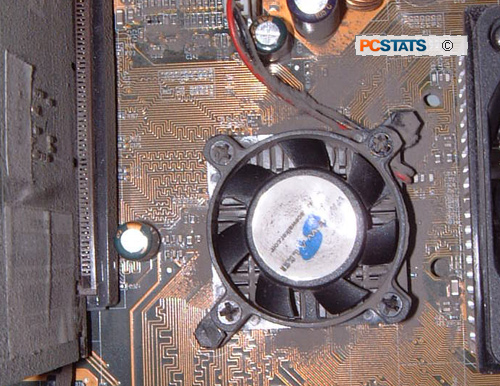Beginners Guides: Annual PC Checkup Checklist
A medical primer for your computer,
from dust bunnies to defragging, keep your computer in good health. - Version 1.2.0
There
comes a time in every once-new computer's life when it just doesn't feel
fresh anymore. You know, when it's taking
5-10 minutes to boot up into Windows, the fans are making funny squealing noises, and
there's a wad of orange cat hair protruding from the rear fan grille. It's
the computer equivalent of senility, your once precious box has lost its edge.Time for action.
Sure, you could pop down to your local computer
mart for $200 or so of fresh parts to keep the dust from settling, but for those
of us on a budget there is another option. For starters, there are a fair
few things you can do to make your old faithful feel (somewhat) like new again
without much expense. Let's take a quick look at some of the most common
hardware and software problems related to constant use, and find some quick
solutions.
First though, an list of things you are going to
need; a "PC first aid kit" if you like:
- Phillips head screwdriver
- Can of compressed air (from your local computer, electronics or hardware store)
- Can of mechanical oil (preferably not WD-40) with a dropper.
- Windows XP Home or Professional CD
- Soft cloth.
- Cat repellant.
Ok, forget about the cat
repellant. It's hard to find, anyhow, and the can of compressed air will do in a
pinch. Just turn it upside down and aim. Try not to do this near open flames
however, unless you are looking for a more permanent solution to your
cat/computer issues.
 Fan problems are by far the most common age-related computer health issue. Fans are
essential to your PC's well being, and they will gum up eventually,
unless you habitually work in a clean room.
Fan problems are by far the most common age-related computer health issue. Fans are
essential to your PC's well being, and they will gum up eventually,
unless you habitually work in a clean room.
Common computer fans include the CPU heat-sink fan, possibly the
most essential mechanical part in your computer, especially if you happen to
be running one of the newer AMD processors.
Problems with this fan can cause all kinds of
crashes and software glitches due to heat. If that fan stops, so does your
computer, potentially forever, with a little wisp of very expensive smoke.
Other important fans are the Power-supply fan at the rear of
the case, which is often the only source of airflow in and out of the
computer, and any case fans that may have been added to promote
air movement and stop the dust from settling.
Dust settling is a major problem for fans, and computer health
in general. Generally speaking, the higher you place the computer the better
the air-flow in and out of the case, and the longer the fans are going to
last. This is simply because of the dust and other airborne nasties
like the aforementioned cat hair and cigarette smoke.

